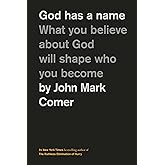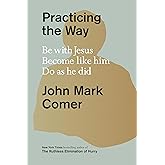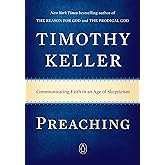
Amazon Prime Free Trial
FREE Delivery is available to Prime members. To join, select "Try Amazon Prime and start saving today with FREE Delivery" below the Add to Cart button and confirm your Prime free trial.
Amazon Prime members enjoy:- Cardmembers earn 5% Back at Amazon.com with a Prime Credit Card.
- Unlimited FREE Prime delivery
- Streaming of thousands of movies and TV shows with limited ads on Prime Video.
- A Kindle book to borrow for free each month - with no due dates
- Listen to over 2 million songs and hundreds of playlists
Important: Your credit card will NOT be charged when you start your free trial or if you cancel during the trial period. If you're happy with Amazon Prime, do nothing. At the end of the free trial, your membership will automatically upgrade to a monthly membership.
Buy new:
-17% $16.57$16.57
Ships from: Amazon.com Sold by: Amazon.com
Save with Used - Good
$10.98$10.98
FREE delivery April 4 - 10
Ships from: Isabella's Book Barn Sold by: Isabella's Book Barn

Download the free Kindle app and start reading Kindle books instantly on your smartphone, tablet, or computer - no Kindle device required.
Read instantly on your browser with Kindle for Web.
Using your mobile phone camera - scan the code below and download the Kindle app.

Follow the author
OK
When the Church Was a Family: Recapturing Jesus' Vision for Authentic Christian Community Paperback – August 1, 2009
Purchase options and add-ons
Spiritual formation occurs primarily in the context of community. But as the modern cultural norm of what social scientists call “radical American individualism” extends itself, many Christians grow lax in their relational accountability to the church. Faith threatens to become an “I” not “us,” a “my God” not “our God” concern.
When the Church Was a Family calls believers back to the wisdom of the first century, examining the early Christian church from a sociohistorical perspective and applying the findings to the evangelical church in America today. With confidence, author Joseph Hellerman writes intentionally to traditional church leaders and emerging church visionaries alike, believing what is detailed here about Jesus’ original vision for authentic Christian community will deeply satisfy the relational longings of both audiences.
- Print length240 pages
- LanguageEnglish
- PublisherB&H Academic
- Publication dateAugust 1, 2009
- Dimensions6 x 0.65 x 9 inches
- ISBN-100805447792
- ISBN-13978-0805447798
Book recommendations, author interviews, editors' picks, and more. Read it now
Frequently bought together

More items to explore
From the brand

-
Shop Bibles
-
Shop Bibles
-
Shop Bible Studies
-
Shop Bible Studies
-
Shop Devotionals
-
Shop Kids’ Books
-
Shop Kids’ Books
-

Editorial Reviews
About the Author
Joseph H. Hellerman is professor of New Testament at Biola University in La Mirada, California, and helps pastor Oceanside Christian Fellowship in nearby El Segundo. He holds degrees from Biola (Master of Divinity and Master of Theology, Old Testament) and the University of California (Bachelor of Arts in English and Masters of Arts in English and History of Christianity).
Product details
- Publisher : B&H Academic (August 1, 2009)
- Language : English
- Paperback : 240 pages
- ISBN-10 : 0805447792
- ISBN-13 : 978-0805447798
- Item Weight : 12.2 ounces
- Dimensions : 6 x 0.65 x 9 inches
- Best Sellers Rank: #88,606 in Books (See Top 100 in Books)
- #138 in Christian Church Leadership (Books)
- #7,183 in Christian Living (Books)
- Customer Reviews:
About the author

Discover more of the author’s books, see similar authors, read book recommendations and more.
Customer reviews
Customer Reviews, including Product Star Ratings help customers to learn more about the product and decide whether it is the right product for them.
To calculate the overall star rating and percentage breakdown by star, we don’t use a simple average. Instead, our system considers things like how recent a review is and if the reviewer bought the item on Amazon. It also analyzed reviews to verify trustworthiness.
Learn more how customers reviews work on AmazonCustomers say
Customers find the book helpful and eye-opening. They describe it as a great, interesting read that reminds them of what is missing in the church in America. The language is clear and easy to understand, with thorough documentation. Readers appreciate the explanation of the church as family, expanding the boundaries of the physical family.
AI-generated from the text of customer reviews
Select to learn more
Customers find the book helpful and eye-opening. They say it's a formative resource that provides food for thought on important subject matter. The author does a good job of adequately representing the mentality of Scriptures, and it's a great resource for all who want to know who they are in light of who we are as a culture. It's refreshing for an individualized, western culture and will make you rethink church life and what it means to be church.
"...One final thing I really loved about the book was that, in true pastoral fashion, the facts and data are brought to life by unusually intimate looks..." Read more
"This book will make you rethink church life and what it means to be church. It is an easy read." Read more
"...Material Solidarity: the sharing of resources that Paul assumed would characterize relationships among brothers and sisters in God’s family 4...." Read more
"...that he believes both corporate church participation and small group ministry is important but if he had to pick one he would encourage people to..." Read more
Customers find the book easy to read and engaging. They say it's a must-read for pastors and a good book for discussion groups. Readers mention it provides a vocabulary for sharing similar ideas.
"...GREAT BOOK!" Read more
"...This is a book for all people who seek a better way to live out the call of God on their lives...." Read more
"This is a great book for pastors to read when they realize that most of their people live isolated lies...." Read more
"...not without some controversial points that make this a perfect read for discussion groups...." Read more
Customers find the book easy to read and understandable. The documentation is thorough, and the historical examples are compelling.
"...He gives extensive (but easy to understand) historical evidence for this...." Read more
"...The application was challenging but quite straightforward...." Read more
"...It is an easy read." Read more
"...His documentation is so through, his historical examples so compelling, that I almost felt like I was gasping for air in trying to avoid his..." Read more
Customers appreciate the family unity in the book. They find the explanation of the church as a family helpful. The book also explores the benefits of plurality of elders and interpersonal harmony.
"...There is also a discussion about the benefits of plurality of elders (as opposed to a church with one senior pastor)...." Read more
"...of conflict and dissent as a united family, and (4) expand the boundaries of the physical family to include members of the spiritual family such as..." Read more
"...Professor Joe Hellerman successfully makes a case for a more family-oriented, less-individualistic Christianity...." Read more
"...i didnt agree with (divorce & remarriage) but the explanation of the church as family.... EXCELLENT! I sure could have used this yearsnago...." Read more
Top reviews from the United States
There was a problem filtering reviews. Please reload the page.
- Reviewed in the United States on December 12, 2012I admit, I may be a bit biased since I have been sitting in Dr. Hellerman (Pastor Joe)'s pews for over a year now, but to be fair, I have been saying a lot of the same stuff (in person and in writing) long before I met the man or read the book.
His thesis is absolutely right; we as a church are meant to be like a family, where there is love (actual love, not meaningless Christian "love") and forgiveness (actual forgiveness, not meaningless Christian "forgiveness) and where everyone cares about each other in word and deed. The Bible even goes as far as to say "If someone says, "I love God," and hates his brother, he is a liar; for the one who does not love his brother whom he has seen, cannot love God whom he has not seen" (NASB, 1 John 4:20). So, it's kind of important...
Now, he not only uses the Bible well, but he also goes from an angle I had never considered, one which makes the biblical text all the more powerful: the family metaphor is used quite a bit in the Bible, and the family in the ancient near east was a far different animal from what we typically think of in the west today. We all know we're called brothers and sisters etc. But what would that have meant to the people who first heard the message, who the metaphor was applied to? Hellerman makes the case that, in near eastern culture of the time, two things were true. First of all, the society was far less individualistic than modern western society. People, just as a matter of conditioning, saw the well-being of the group as more paramount to their own. Their very concept of identity was wrapped up not in whom they were, but what group they belonged to. This was all the more true of the family. The family was, in many ways, not X number of individuals, but one inseparable unit. That is how the church should be. Secondly (and I would say even more importantly), the family relationship back then was far closer and tighter than it often is in the west today (which makes sense, given their group mentality). In the west, some people are really close to their siblings, and some are not. In Jesus' time, it was pretty much a given that the sibling relationship was the most (emotionally) intimate relationship a person would have (even more so than marriage). He gives extensive (but easy to understand) historical evidence for this. The bond which by nature is quite strong was all the tighter in that culture and context. To say that someone is your brother wasn't just a phrase we throw about all willy-nilly to speak of close friends or even just people of the same race or sports team. Your brothers and sisters were a part of who you were. So to then say that as Christians we are therefore brothers and sisters to one another is incredibly powerful
The book is a good mix of scripture and history. As I said above, taking account the historical context explains what the things said in scripture mean, and knowing how the early Christians practiced them gives additional insight.
There is also a discussion about the benefits of plurality of elders (as opposed to a church with one senior pastor). It is only partly related to the main points, but I think he makes a good case, and he ties it together well enough.
One final thing I really loved about the book was that, in true pastoral fashion, the facts and data are brought to life by unusually intimate looks at aspects of Hellerman's own heart and life. Though written by a professor with abundant research and evidence, this book isn't written from an ivy tower. It isn't just logically coherent arguments that accurately make a point. This is Pastor Joe, a child of God and part of the family of God who has accepted the challenge and honor of teaching God's word leading those who are willing. Since the book is about the church as family, knowing that this is a real person and not just a mind behind the words you read makes it all the more powerful.
CONS:
As my 5-start rating would indicate, there aren't a lot of them. The only thing I'd say to watch out for is the beginning. It isn't dangerous or anything, but it gives somewhat of a different impression of what the book is going to be about than is reality. It comes across more like he's arguing that more group-focused societies are in and of themselves better than western society by virtue of being group-centered, whether or not God is in the picture. I don't think that that is his t his point at all. Remember, the whole thesis is that the ancient near eastern family very close and group-centered, and that since the ancient near-eastern Jesus and his ancient near-eastern apostles were explicitly saying the church is to be just like a family, the Christians should likewise be close knit and loving and forgiving and caring of one another and should more about the church and their brothers than themselves. In the beginning he goes on so much about how other societies are less focused on the individual and some of the pluses of that because later on he's going to be using those two things to make his case about the church. For the church, we should be more like a communal society than the one around us. It's not an argument that we should always submit to the will of the family as would happen in near-eastern culture. In fact, one of the things he argues later is that the family of God, our fellow believers, should in fact take precedence over biological family (which sounds insane, but ultimately makes sense, as in Christ we are bound to and by something greater than our DNA). So, the beginning can be a little bit muddled, as it sounds like it came from a book called "why Americans should emulate more group-centered culture." After all, people without Jesus are people without Jesus, no matter how much of a community they are a part of. In context, however, it fits right in.
CONCLUSION:
If you sincerely follow Jesus, read this book.
- Reviewed in the United States on January 3, 2010Hellerman does a great job of reminding us that the New Testament church was a family. The New Testament culture was also group oriented. We in the WEST are individualistic, non-group oriented, and mostly do not practice the family values of the Christ's New Testament church. We must allow the Holy Spirit to change us. Hellerman gives practical illustrations from his own church experience that show us how to live out NT family values in today's culture.
I did not agree with Hellerman that we should place the family of God above our own nuclear families. He doesn't believe in that distinction, but I believe it's an important one. In my case, each one of my own nuclear family is a strong believer. So yes, each one is also my brother and sister in Christ. Yet, I believe Scripture teaches that I must prioritize my nuclear family above the general family of God (or more specifically my local church family). Hellerman blurs this distinction and even says it's not biblical.
Apart from this disagreement, Hellerman has uncovered an important truth about the church as God's family. He's exhorted us to return to the church as family. Here are some excellent quotes from chapter 8:
"We pay a tremendous emotional price for the freedoms in decision making that we exercise in our radically individualist society. God has not equipped us to operate as isolated individuals, especially where the most important decisions of our lives are concerned. God has created us for community, and it only makes sense to think that we will be healthier psychologically if we make important decisions in the context of a loving and caring church family" (170).
"I find it immensely encouraging to remember that this is God's project, not ours, and to remind myself that the Holy Spirit truly longs to knit us together in community as God intends it. God is more than ready to come alongside those who are willing to do the hard work of living life as the new covenant family of God" (176).
"The one event preeminently identified with the word "church" in most congregations find our people seated side-by-side, facing forward, with little or not interpersonal interaction with persons to the right or to the left. A fellows sitting next to me in Sunday church might have lost his job--or his spouse--that very week. Tragically, however, I would never know it." (177).
"You might try what I did on a Sunday morning some time ago. I preached a sermon entitled `why Sunday A.M. is Not the Church' in which I compared early church family values and practices with the way that we do church on Sunday morning. The application was challenging but quite straightforward. I proceeded gently but firmly to inform my people that many of them--some of who had attended on Sunday for years--had never been to church! Then I encouraged them to begin going to church, that is, to start attending one of our home-group settings where they could cultivate the kind of surrogate sibling relationships that God intends for his children to enjoy with one another" (178).
GREAT BOOK!
- Reviewed in the United States on December 27, 2024This book was suggested to me by my son. For me there is too much in the book to digest that I don’t feel as though I can give a full review. However, the one thing that I would state is that much of the information in the book is repeated constantly. I’m not sure if that was done purposefully or not.
- Reviewed in the United States on July 15, 2024This book will make you rethink church life and what it means to be church. It is an easy read.
Top reviews from other countries
 Kindle CustomerReviewed in Germany on August 29, 2023
Kindle CustomerReviewed in Germany on August 29, 20235.0 out of 5 stars A classic book on building a genuine Christian church
I wish this book or a summary of its message could become an important part of every church foundational teaching.
 MIchelle NunnReviewed in the United Kingdom on May 2, 2015
MIchelle NunnReviewed in the United Kingdom on May 2, 20155.0 out of 5 stars A challenging read for those of us raised in the West and submerged in individualism.
A good read, a bit repetitive in places, but the central point that we are saved into community is worth exploring and pondering deeply.
 Johnny MarkinReviewed in Canada on August 16, 2017
Johnny MarkinReviewed in Canada on August 16, 20175.0 out of 5 stars Great historic and culture resource
This is a helpful corrective for the individualistic tendencies within Western Christendom. Hellerman helps the reader understand into what context the Early Church was shaped, and how community played a significant role in discipleship of Christian believers in a period marked by persecution from different sources.
 LorrieReviewed in Canada on October 24, 2014
LorrieReviewed in Canada on October 24, 20141.0 out of 5 stars Mixed feelings on this one - it gave me a ...
Mixed feelings on this one - it gave me a rich understanding of the spiritual/cultural understanding of "brother and sister" but was so rigid and "religious" it was a bit hard to swallow at times. I guess it was a "suck off the meat, spit out the bones" kind of book.













































